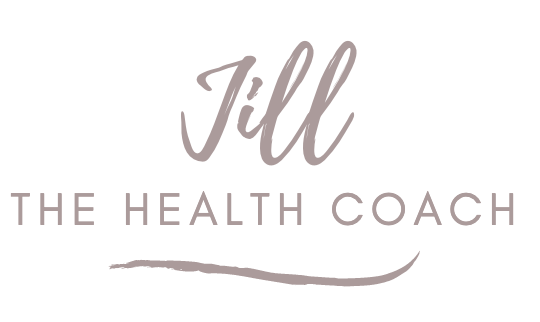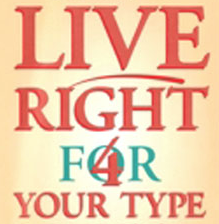Reposted from May 27, 2015
Have you ever wondered why some people seem to lose weight easily by eating lots of meat but some can’t seem to lose weight when just eating vegetables?
How about when you work out exactly as hard as another, but they seem to get better results?
Why is it that The Zone Diet will make cause some to gain weight and others to lose weight?
How is it that one person’s nutritional supplements work miracles but can make others feel lousy?
How can one best selling book say one thing about nutrition and the other best selling book say just the opposite?
We all expect the same thing to work on all of us but we need to consider that we are all different. One person’s normal may not be even close to another person’s normal. Is there a distinguishing factor that makes us different?
Of course there are a plethora of characteristics that distinguish us. However, many researchers believe that we can be categorized by blood type. These different types are based on individual genetic codes with each consistently displaying specific personality traits and dietary requirements and restrictions.
Anthropologists have speculated that blood types historically evolved due to changes in diet, culture and social conditions. Due to these differing environmental factors, each blood type has particular strengths and limitations. When these tendencies are known and diet and exercise is modified to maximize an individual’s genetic strengths, it becomes easier to maintain health. So, the first critical component of the blood type diet revolves around the question of which foods your blood type ancestors had available and thrived on. The same applies to what type of exercise they thrived on as well.
In Dr. Peter D’Amo’s book, Live Right For Your Type, he discusses how each blood type life prescription shows how, according to blood type, you should adapt your lifestyle, deal with stress, and put into practice the right strategies for aging, to achieve emotional balance, maximize health and overcome disease.
Type A were farmers and cultivators:
Thrive on vegetarian diet and can metabolize a wide range of grains and beans; has smaller capacity to digest animal protein and should eat very little meat; lentils, fish and plenty of vegetables energize these individuals; engage in yoga or gentle exercise to reduce stress: take naps or frequent breaks to stay focused; as you age, a regular sleep cycle is crucial to keep your health in balance
Type B were nomads:
Have greatest range of food choices and thrive on dairy and meat but corn and chicken can be very aggravating; focus on creative outlets; engage in walking and mediation to reduce stress; mental activities are crucial to retaining memory
Type 0 were hunters:
Thrive on animal protein-very important to have meat! (Type Os do not fare well as vegetarians); have great health problems when they eat a lot of grains and beans and should avoid wheat, corn and dairy; engage in aerobic exercise to reduce stress; as you age, vigorous exercise is crucial.
Type AB were abstract:
A combination of Type A and B, ABs require meat protein but need smaller and more frequent portions; should avoid corn and chicken; break up your day with physical activity to fell mor energized; be aware of environment as you age, to avoid susceptibility to bacterial infections.
So, if you are struggling to lose weight and you’re a Type O, you may want to add meat to your diet and weight may come off easier with more energy. Are you a Type B who eats a lot of chicken? Avoid chicken for a week and notice changes in how you feel. Are you a Type A and a big meat eater? Try eating less meat and tons of vegetables and notice the swing of energy.
Check out this Blood Type Diet App which will help you get started. Let me know what changes you made and how they made you feel.
All material in this newsletter is provided for information only and may not be construed as medical advice or instruction. No action or inaction should be taken based solely on the contents of this publication;instead readers should consult appropriate health professionals on any matter relating to their health and well-being. The information provided has not been approved the Food & Drug Administration and is not intended to diagnose, treat, cure, or prevent any illness or disease.

